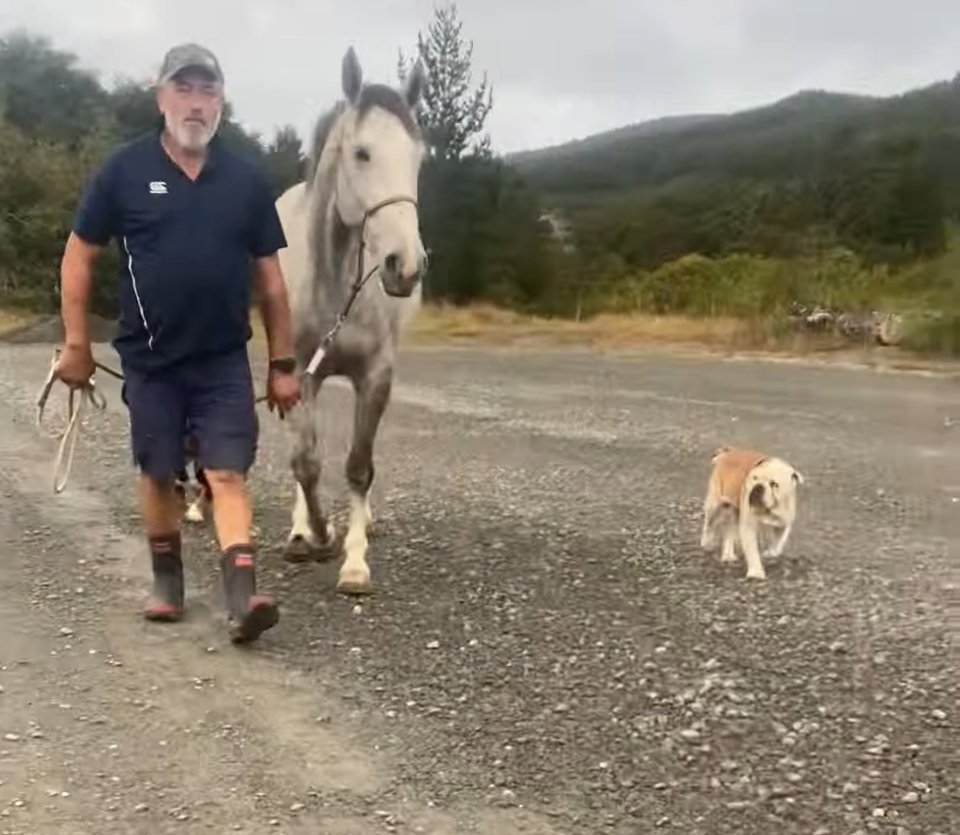Jim Reedy Update - NZ Police Response to PWASNZ Advocacy
The Jim Reedy incident was a tragedy we do not want to ever see repeated on our roads. Learn more at our earlier blog..
When such an incident takes place in our community it is important to support those involved, Julia McLean of PWASNZ did just that by standing for the Reedy whānau and advocating for answers and for the change we need to see.
We have received some very positive news from NZ Police. Please take time to read the letters in this blog to understand the hard work going on behind the scenes and the huge postitive changes PWASNZ is making to the horse riding community in only a matter of months. We are doing this through kotahitanga / unity and those stakeholders like NZ Police are a key part of the unity taking place for all road users as we work hard to be categorised as Vulnerable Road Users.
Leanne Reedy’s response to action being taken by NZ Police
“It’s made me feel like there’s some accountability.”
Julia McLean founder of Pass Wide & Slow New Zealand together with Dr Tony Parsons, Chair of the Equine Welfare and Ethics group and Helen Beattie of Veterinarians for Animal Welfare Aotearoa wrote to the Police Commissioner requesting officers receive adequate training on how to humanely euthanise a horse.
Words from letter above.
Dr Tony Parsons NZ Equine Health Association
19 April 2025
Dear Commissioner Chambers, I am writing on behalf of the Ethics and Welfare Committee of the NZ Equine Health Association. The NZEHA is a representative group of the wider equine industry and community and is the communication point between Government/MPI and the equine industry. I am aware that from time to time your front-line Officers must deal with injured animals, including horses. On some of these occasions they need to make decisions around euthanasia before veterinary assistance can arrive. This is often after a road traffic incident. This is not an easy task, and we understand that most Officers would likely be doing this at a high-pressure moment and for the first time. I am not sure what training Officers receive, but MPI publish a series of Welfare Codes that show the correct way to euthanise an animal with a firearm. If Officers don’t already have access to this information it is a readily available source for them to refer to in their training. The Code for horses can be found at https://www.mpi.govt.nz/dmsdocument/46060-Code-of-Welfare-Horses-and-donkeys I hope this is helpful in assisting your Officers to humanely carry out this difficult task. Yours sincerely Tony Parsons
Jim’s tragic incident and the events that unfolded shocked us all. PWASNZ is grateful to the Reedy whānau for its support in allowing advocates to seek improvements on their behalf and to NZ Police for its respectful response.
Letter above reads:
8 May 2025
Julia McLean passwideandslownz@gmail.com
Dear Julia
I refer to your email dated 15 April 2025 to Commissioner of Police Richard Chambers, regarding the incident where a horse was euthanised by a frontline Police Officer. I have been delegated to compile a response to your correspondence.
Firstly, thank you for your email, and for taking the time to share this incredibly difficult experience. On behalf of New Zealand Police, I want to express our empathy to everyone impacted by the distressing events described. We fully acknowledge the trauma involved, and we are grateful to you for raising this matter with us. We also want to thank you for the work you are doing through Pass Wide and Slow New Zealand to educate road users and advocate for the safety and welfare of both riders and horses. Your dedication to awareness and change is commendable.
While we acknowledge the complexity and urgency that can accompany these types of incidents like the one described, especially in rural or isolated areas, we recognise that more could be done to equip our frontline staff with the tools, training, and guidance needed to respond in a way that is not only lawful but also humane, ethical, and sensitive to the distress of those involved. You have highlighted a gap in our current approach. While frontline Police officers sometimes find themselves as first responders in situations involving injured animals, we do not currently provide formal training on euthanasia procedures. This can lead to inconsistencies in practice, and in the worst cases, prolonged suffering for animals and trauma for those witnessing the event.
We understand how this could be distressing to those affected. We take these concerns seriously. In response, we will be issuing a clear reminder to frontline staff about the need to involve appropriate agencies, such as Ministry for Primary Industries or a local veterinarian, whenever possible.
We want to ensure officers understand the expectations around humane decision-making in these difficult situations. We also acknowledge the reality that external support may not be immediately available, and in those instances, officers may be forced to make decisions based on limited options.
It is for this reason that we are giving thought to how we can better support our people with clear guidance, decision-making, and access to information that enables them to respond humanely and confidently under pressure.
Jim Reedy who survived but sadly his hōiho did not survive the truck trailer in later 2024.








